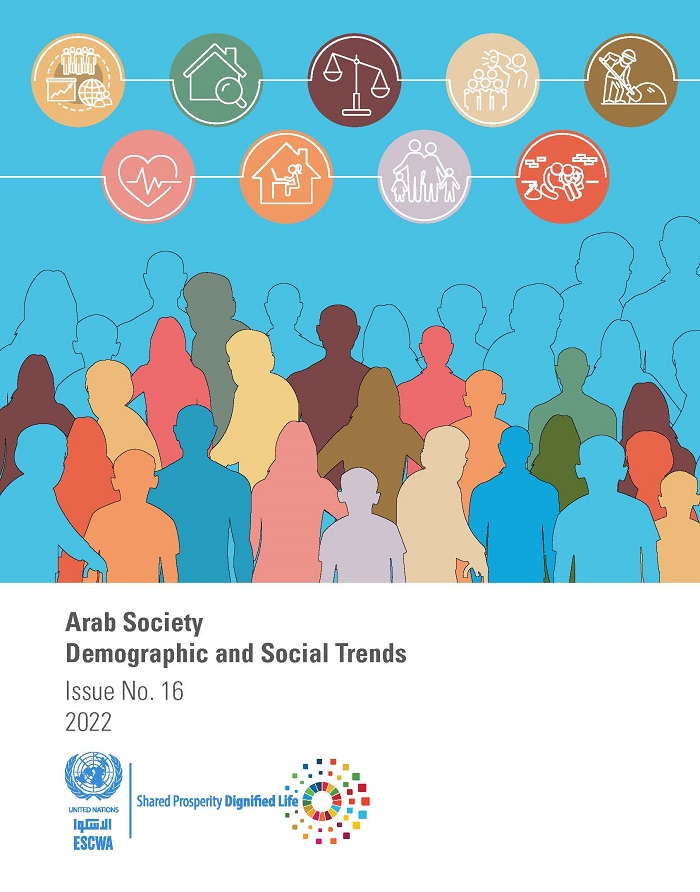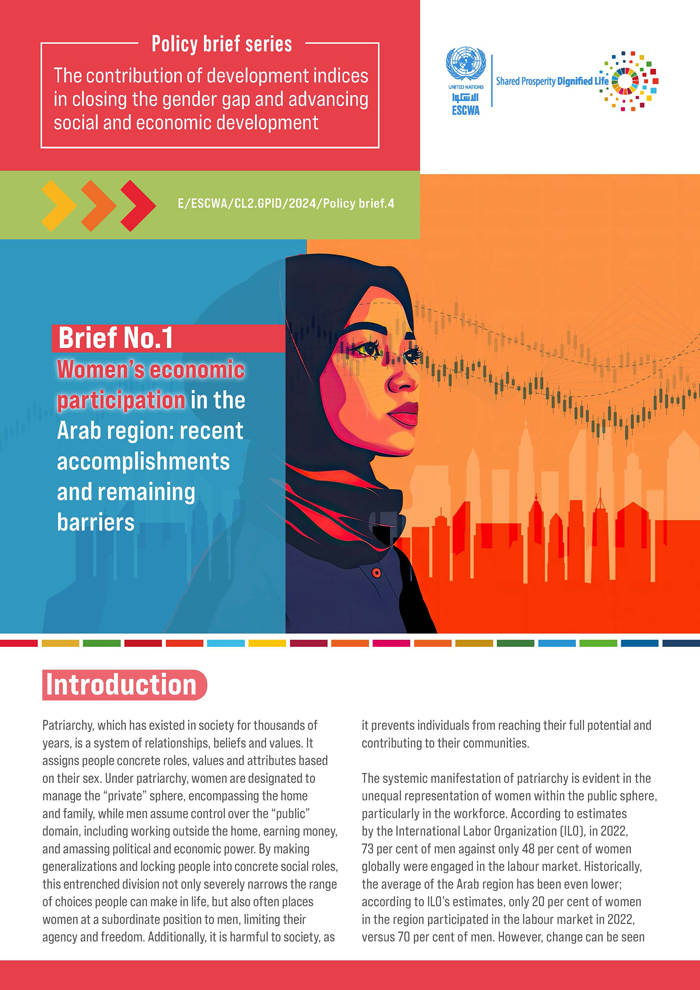
ESCWA Publication: E/ESCWA/CL4.SIT/2022/2
Country: Arab region, Arab Republic of Egypt, Republic of Iraq, Hashemite Kingdom of Jordan, Lebanese Republic, State of Libya, Islamic Republic of Mauritania, Kingdom of Morocco, Sultanate of Oman, State of Palestine, State of Qatar, Kingdom of Saudi Arabia, Republic of Sudan, Syrian Arab Republic, Republic of Tunisia, Republic of Yemen
Publication Type: Flagship publications
Cluster: Statistics, Information Society and Technology
Focus Area: 2030 Agenda, Gender equality, Population dynamics & migration
Initiatives: International migration, Population & Housing Censuses, Water Resources Management Tools, Addressing multidimensional poverty, Civil registration & vital statistics
SDGs: Agenda 2030, Goal 1: No Poverty, Goal 3: Good Health and Well-Being, Goal 4: Quality Education, Goal 5: Gender Equality, Goal 6: Clean Water and Sanitation, Goal 8: Decent Work and Economic Growth, Goal 10: Reduced Inequalities, Goal 11: Sustainable Cities and Communities
Keywords: Population dynamics, Housing conditions, Education, Covid-19, Poverty, Labour, Culture, Fertility rate, International migration, Employment, Unemployment, Statistical data, Health care delivery
Arab Society: Demographic and Social Trends, Issue No. 16
March 2023
This publication is the latest in a series published biennially by the Statistics, Information Society and Technology Cluster of the Economic and Social Commission for Western Asia (ESCWA). It presents a broad illustration of Arab society and the ways in which it has been changing, and focuses on population dynamics, household composition and family formation, housing conditions, health, labour, poverty and inequality, education, culture, social participation and the effects of the COVID-19 pandemic.
Data are compiled primarily from national statistical offices of ESCWA member countries and supplemented by publicly accessible data from international organizations, such as the International Labour Organization (ILO), the World Bank, the United Nations Education, Scientific and Cultural Organization (UNESCO), the United Nations Department of Economic and Social Affairs (DESA), the World Health Organization (WHO), the Office of the United Nations High Commissioner for Refugees (UNHCR) and UN-HABITAT.
Annexes:
Related content
2030 Agenda
, Gender equality
, Population dynamics & migration
,
This publication is the latest in a series published biennially by the Statistics, Information Society and Technology Cluster of the Economic and Social Commission for Western Asia (ESCWA). It presents a broad illustration of Arab society and the ways in which it has been changing, and focuses on population dynamics, household composition and family formation, housing conditions, health, labour, poverty and inequality, education, culture, social participation and the effects of the COVID-19 pandemic.
Data are compiled primarily from national statistical offices of ESCWA member countries and supplemented by publicly accessible data from international organizations, such as the International Labour Organization (ILO), the World Bank, the United Nations Education, Scientific and Cultural Organization (UNESCO), the United Nations Department of Economic and Social Affairs (DESA), the World Health Organization (WHO), the Office of the United Nations High Commissioner for Refugees (UNHCR) and UN-HABITAT.
Annexes:



